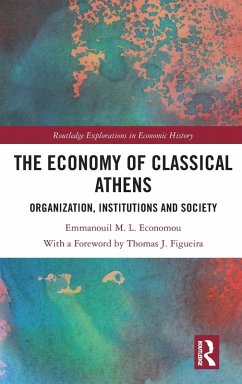
Corruption, Infrastructure Management and Public-Private Partnership
Optimizing through Mathematical Models
Versandkostenfrei!
Versandfertig in 6-10 Tagen
45,99 €
inkl. MwSt.
Weitere Ausgaben:

PAYBACK Punkte
23 °P sammeln!
Public-Private Partnerships (PPP or 3Ps) allow the public sector to seek alternative funding and expertise from the private sector during procurement processes. Such partnerships, if executed with due diligence, often benefit the public immensely. Unfortunately, Public-Private Partnerships can be vulnerable to corruption. This book looks at what measures we can put in place to check corruption during procurement and what good governance strategies the public sector can adopt to improve the performance of 3Ps.The book applies mathematical models to analyze 3Ps. It uses game theory to study the ...
Public-Private Partnerships (PPP or 3Ps) allow the public sector to seek alternative funding and expertise from the private sector during procurement processes. Such partnerships, if executed with due diligence, often benefit the public immensely. Unfortunately, Public-Private Partnerships can be vulnerable to corruption. This book looks at what measures we can put in place to check corruption during procurement and what good governance strategies the public sector can adopt to improve the performance of 3Ps.
The book applies mathematical models to analyze 3Ps. It uses game theory to study the interaction and dynamics between the stakeholders and suggests strategies to reduce corruption risks in various 3Ps stages. The authors explain through game theory-based simulation how governments can adopt a evaluating process at the start of each procurement to weed out undesirable private partners and why the government should take a more proactive approach.
Using a methodological framework rooted in mathematical models to illustrate how we can combat institutional corruption, this book is a helpful reference for anyone interested in public policymaking and public infrastructure management.
The book applies mathematical models to analyze 3Ps. It uses game theory to study the interaction and dynamics between the stakeholders and suggests strategies to reduce corruption risks in various 3Ps stages. The authors explain through game theory-based simulation how governments can adopt a evaluating process at the start of each procurement to weed out undesirable private partners and why the government should take a more proactive approach.
Using a methodological framework rooted in mathematical models to illustrate how we can combat institutional corruption, this book is a helpful reference for anyone interested in public policymaking and public infrastructure management.














